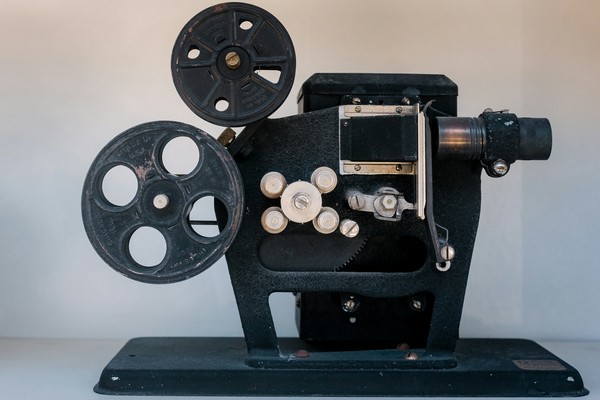Revisiting classic Korean films that influenced Korean cinema
THE KOREAN film industry boasts various outstanding filmmakers and their works, depicting meaningful and artistic imagery to the world. In particular, a throwback to the industry in the 1960s and 1970s allows us to revisit films iconic for their innovative and unconventional artistry. Three films in particular─which are available on the official YouTube channel of the Korean Film Archive, Korean Classic Film, for free─stand out for their legacy of creativity and prevailing influence over Korean cinema.

The Housemaid, a stylish masterpiece
One of the most famous Korean films from the 1960s is The Housemaid, directed by Kim Ki-yeong. The film details a series of events that unfold when a middle-class family hires a resident housemaid. Dong-sik, the male protagonist, is the breadwinner of his family and makes a living as a piano teacher. He hires a resident housemaid after the family moves into a two-story Western-style house and his wife becomes pregnant with their third child. However, the housemaid is an ambitious character, who seduces Dong-sik and attempts to replace his wife, leading the plot into a striking conflict between the two women and an indecisive man stuck in the middle[1].
Although the plot may seem like a common adultery affair story, The Housemaid enhances intrigue by employing stunning cinematic techniques, such as visualizing intangible concepts on the screen by associating them with physical spaces. For instance, within the two-story house, Kim sets the first floor as a space representing an ordinary middle-class family where traditional gender roles dominate. Contrarily, the second floor of the house is a space representing the housemaid’s ambition to raise her socioeconomic leverage by becoming the wife of the family’s breadwinner. Within this floor, the director thereby shows scenes in which the housemaid controls and manipulates other characters[1]. The contrasting settings highlight the domestic grapple for power. Such creative and artistic cinematic settings were powerful enough to influence Korean films afterward; Martin Scorsese, a famous film director, commented that he could easily find the impact The Housemaid has had on many well-known Korean filmmakers like Park Chan-wook and Bong Joon-ho[2].

Full Autumn, an irreplicable romance film
Full Autumn, directed by Lee Man-hui in 1966, is a romance film famous for its unconventional plot, especially when compared to expectations of the era’s typical romantic storylines. Unlike other romance films in the 1960s. which were focused on delivering a complete love story between two main characters, Full Autumn chooses to center around a single event within a broader love story. The film revolves around a female protagonist, a prisoner, who is granted a three-day chance at freedom. Without delivering specific explanations about the main characters’ backgrounds or the situational context, the film captures the short moments of love with unclear endings[3]. Such a pace creates an intimate view of the characters’ relationship. Due to its unconventional and impressive storytelling style, the film won numerous awards when it was screened[1].
Aside from the film’s notably different storyline, it is also well known for the disappearance of all of its physical copies. After screening, every copy of the film disappeared, making Full Autumn no more than a myth in the Korean film industry; the film only exists through the testimony of the audience present during its first screening. The mystic aura of such a masterpiece quickly attracted other Korean filmmakers to recreate the film[3]. Most recently, director Kim Tae-yong made another stirring version starring Hyun-bin and Tang Wei in 2011[1].

The March of the Fools, a highlight for artistry and commerciality
Following the military coup and dictatorship of the 1960s and 1970s in Korea, this era of filmmaking was also known as the age of censorship. However, despite the restrictions and government interference that often dominated the Korean film industry at the time, there is an iconic film that cleverly exploited censorship by turning it into a filming technique. The 1975 film directed by Ha Gil-jong, The March of the Fools, is a legendary work that intentionally shot problematic scenes, awaited government censorship, and removed censored scenes instead of reshooting them[4]. The result of such a tactic is a film with disconnected scenes that emphasize the presence of government intervention, thereby incorporating censorship as an artistic medium. Using these twists in storytelling, Ha revindicated the burden of censorship by turning it into a mockery ridiculing the dictatorship.
In addition to its artistic cleverness, the film also achieved great commercial success. The film cinematically portrayed the lives of college students in Korea as they endured the miseries of the time. A storyline focusing on Korea’s youth attracted a young demographic to the theater, ushering in a new age in which young people became integral audience members[1]. The film’s achievements in both artistic and commercial realms granted it a legendary status.
* * *
Amidst the broad history of Korean filmmaking, it seems clear that the 1960s and 1970s were a vibrant era that birthed many powerful filmmakers. Despite the turbulent times, the film industry continuously searched for ways to creatively interpret and artistically reconstruct reality. This effort resulted in masterpieces that both filmmakers and audiences reference even today. These films present a nostalgic and stunning experience encapsulating a powerful era for the Korean film industry and allow contemporary audiences to revisit its legacy.
[1] Korean Movie Database (KMDb)
[2] The Criterion Channel
[3] Yeong hwa cheon guk (A Movie Heaven)
[4] The Kyunghyang Shinmun

